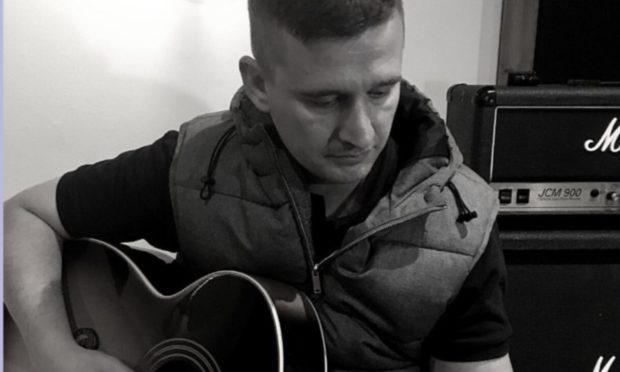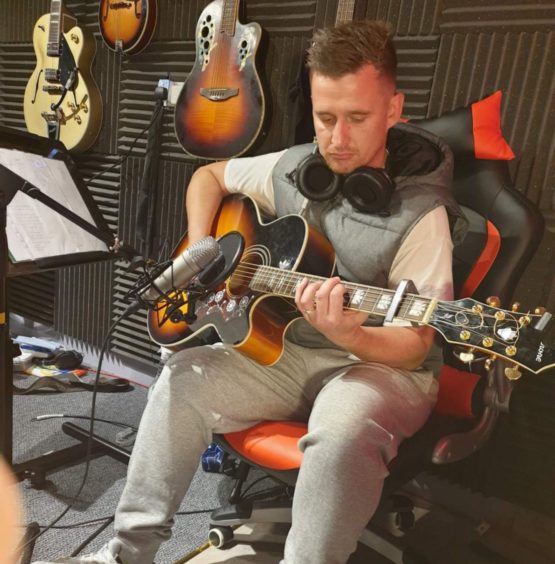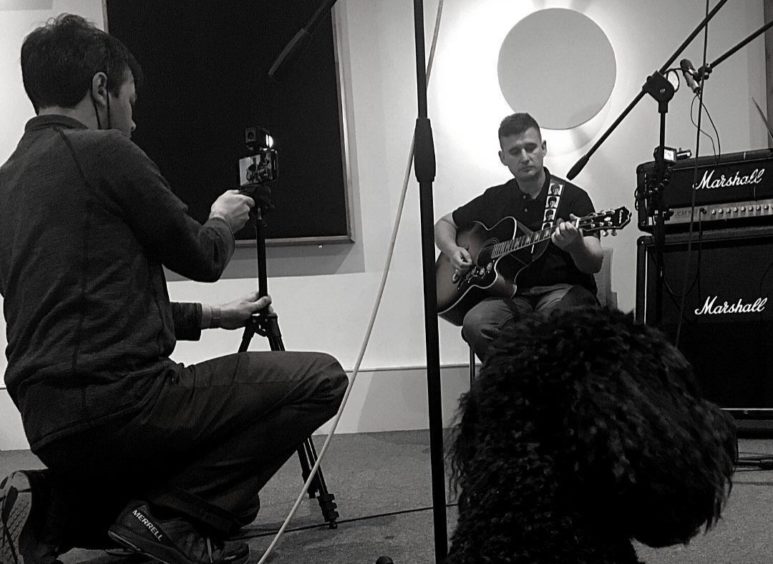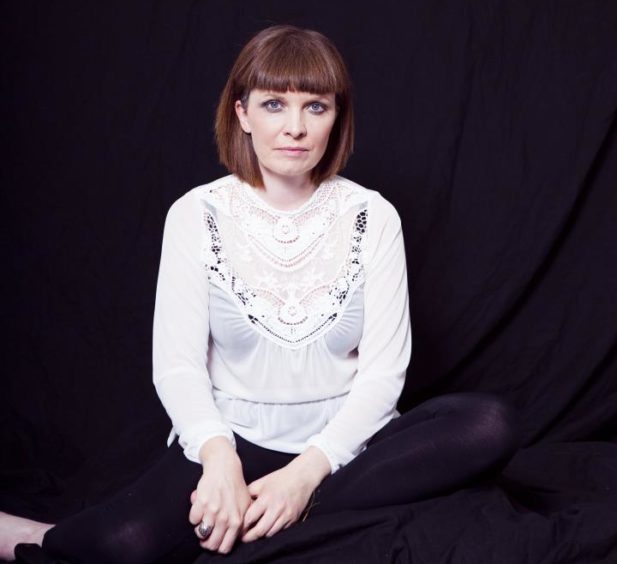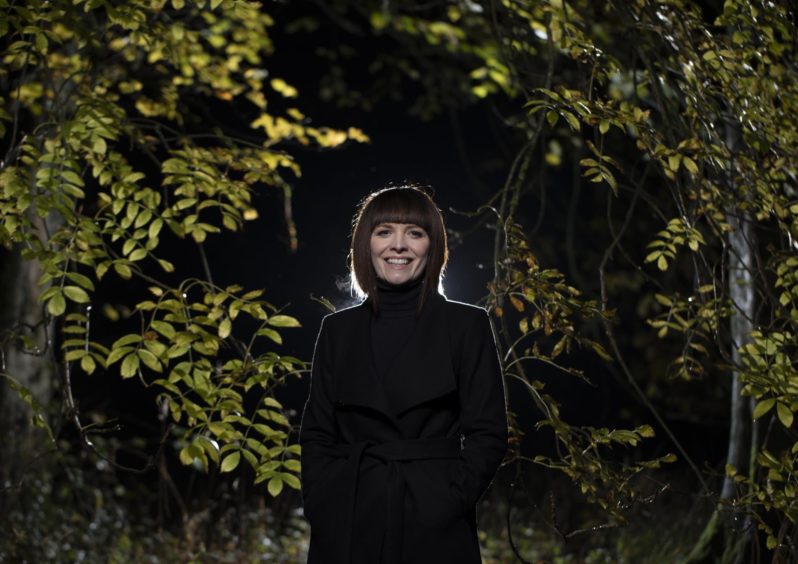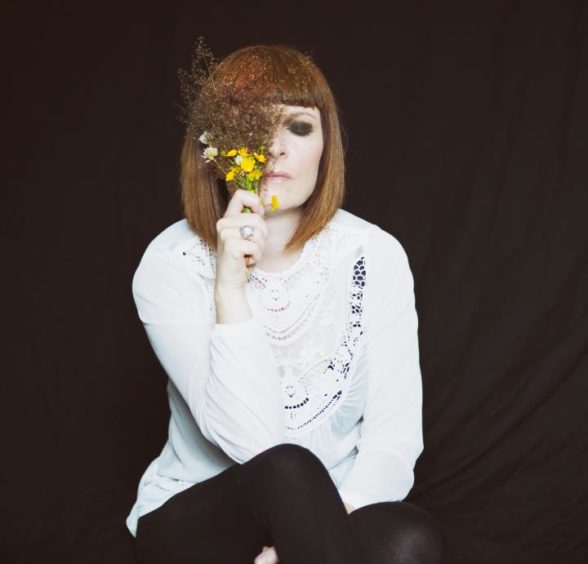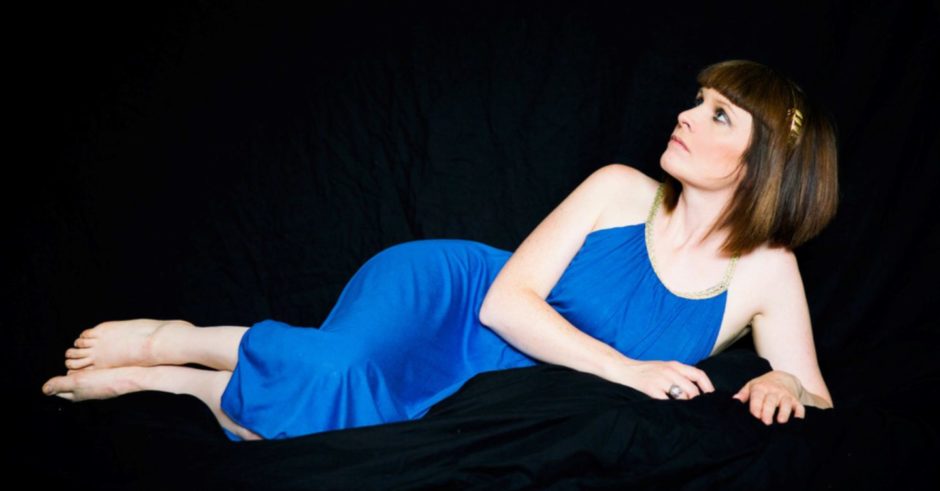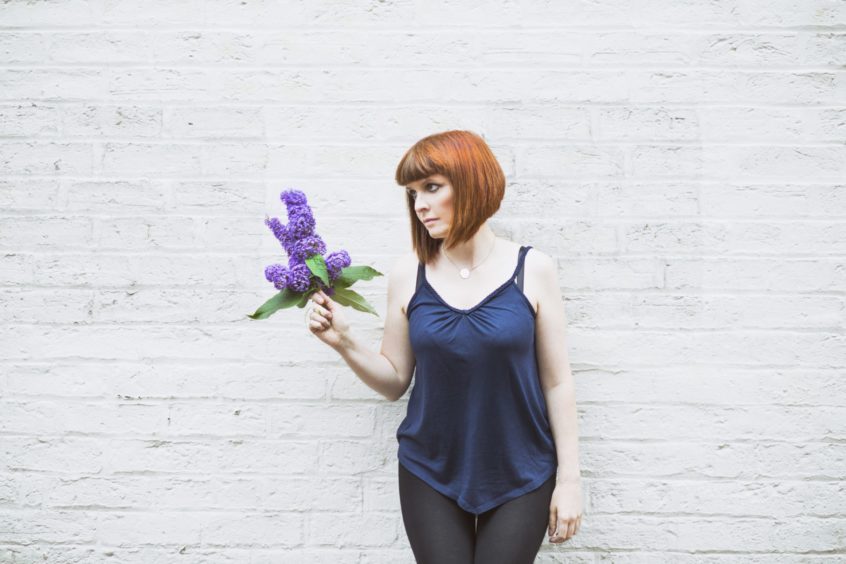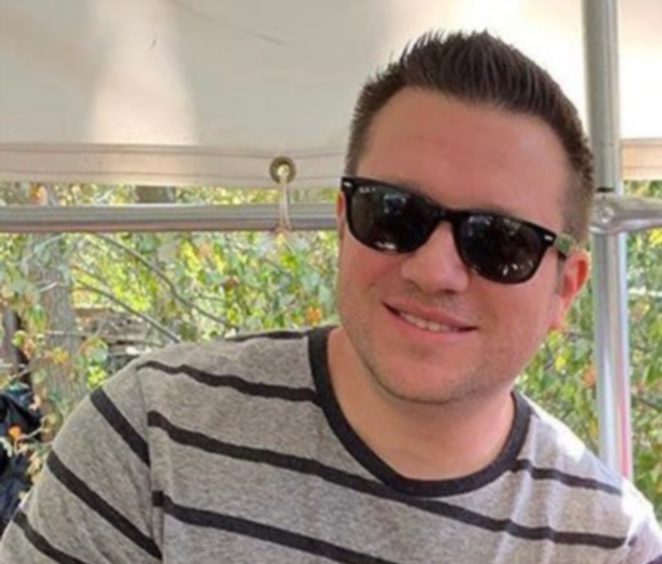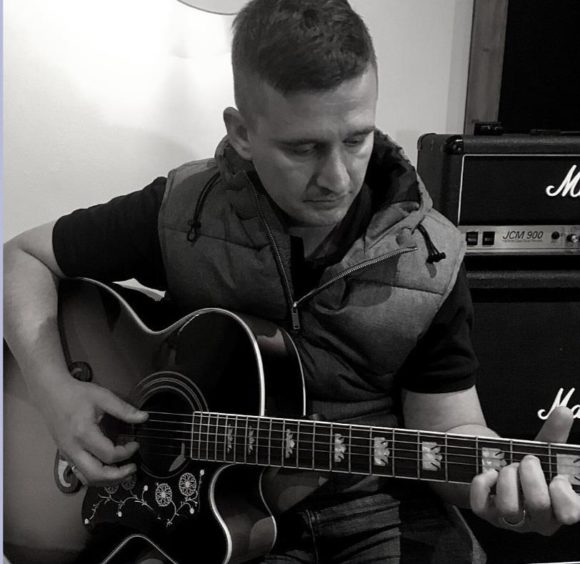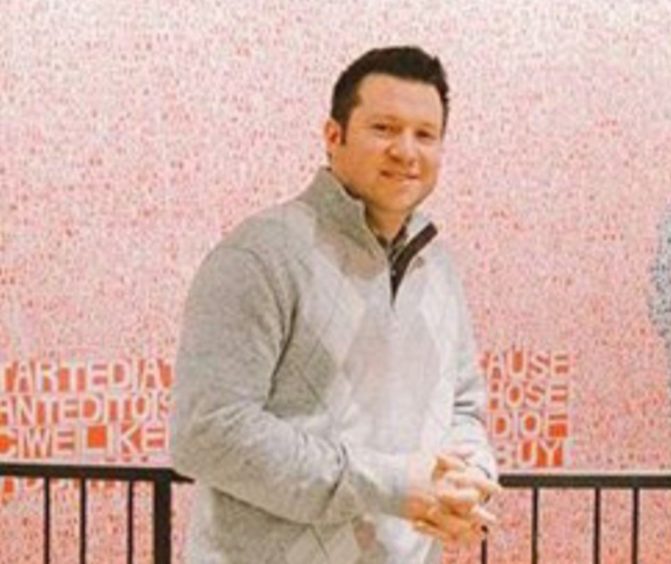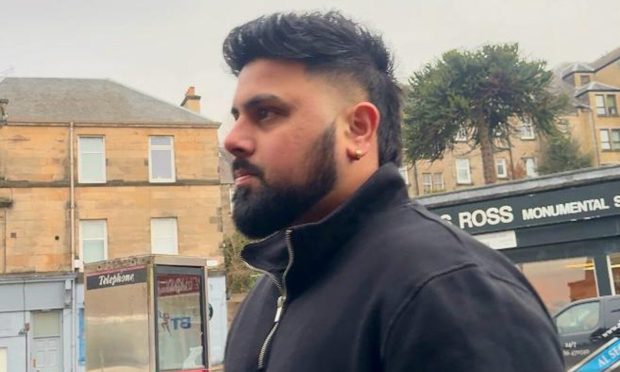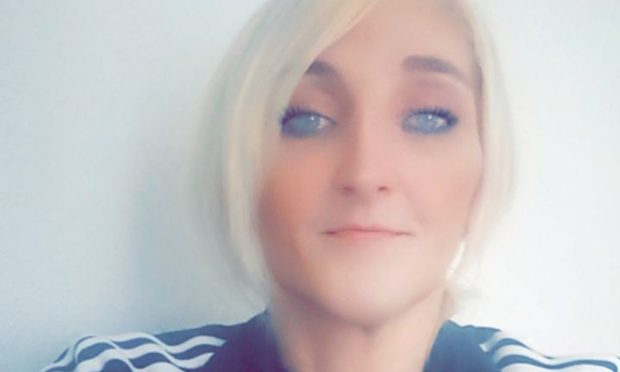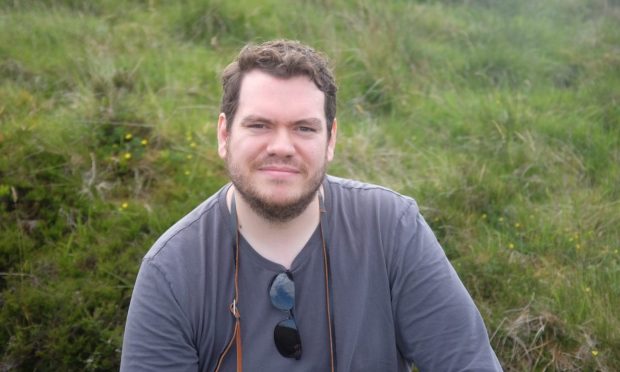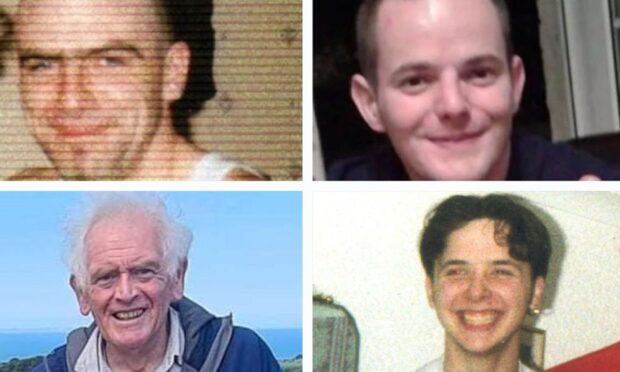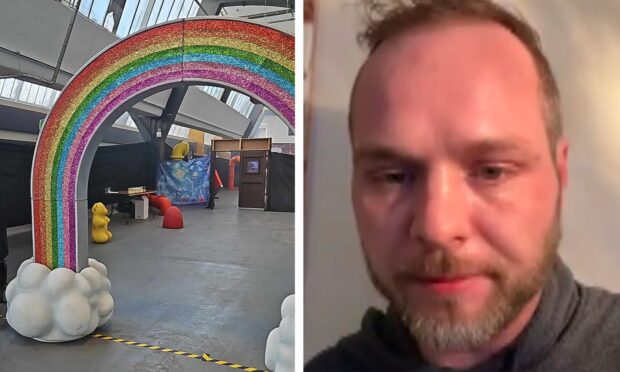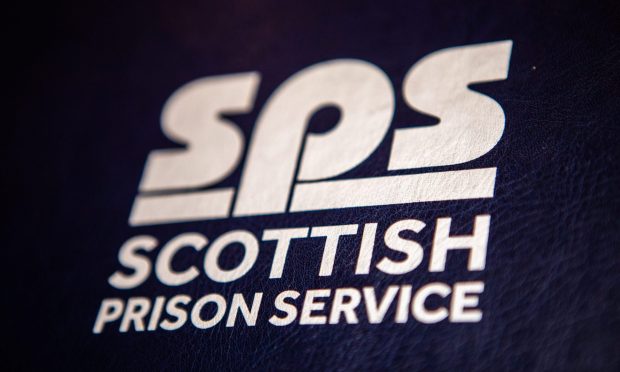Michael Alexander speaks to Jill Brown, the creator of Conviction Records – a new record label which aims to give a voice to jailhouse Scots and inspire them on the road to redemption.
It was a “moment of madness” that resulted in Ryan Kershaw serving six months in jail for ordering a banned pepper spray online.
But the time served by the father-of-two in Addiewell Prison, West Lothian, in 2019 led to him picking up a guitar again for the first time in years – and could, he hopes, lead to a music career.
Having put his musical ambitions on hold years ago to concentrate on family life, Ryan began strumming away during his jail term and started to write his own songs.
Now, in a twist of fate, the 37-year-old from South Lanarkshire is on the verge of being the first signing to Conviction Records – a new record label whose aim is to help ex-offenders.
“By no means am I a criminal,” says Ryan, who works as a youth worker in Larkhall.
“But I understand that I have a criminal record and I understand I was punished for something ridiculously stupid that I have done.
“All I did was order a pepper spray. I didn’t realise the consequences of doing so, and when I tried to cancel the order, it was too late. It was intercepted at the airport.
“When the police came to my door, I obviously explained the situation to them, but two years later I pleaded guilty and was given a custodial sentence.”
‘Worst place in the world’
Ryan felt “quite out of place” in prison and describes jail as “the worst place in the world”.
Describing himself as a hard-working family man who was in the midst of completing his university education and paying his mortgage at the time of the “stupid” offence, he was incarcerated in a world where he was exposed to “horrible scenes of drug abuse and violence”.
Keeping his head down to avoid trouble, he started writing songs about how he was feeling.
“I was extremely depressed,” he recalls.
“I’d lost everything. In my eyes, my life was over at the time.
“I’d lost my kids, I’d lost my wife, I’d lost my house, my mortgage, my job – all these things I thought I was going to lose forever.”
Despite the repercussions, his wife stood by him.
He became an ambassador for the prison music department where he was responsible for maintaining kit, while a fellow prisoner, impressed by his material, encouraged him to write more songs.
It was a throw-back to his days at primary school when his uncle bought him a guitar and to the mid-1990s Brit Pop era when he played in a band and thought he would be “the next Liam Gallagher”.
Discovering Conviction Records – a ‘turning point’
However, the turning point came a few months after he got out of prison when someone sent him a newspaper cutting about Glasgow-based Conviction Records, a fledgling label which was looking to sign someone who had spent time inside.
It was set up by former STV journalist Jill Brown, a singer-songwriter herself, who had been running music and song-writing classes in Glasgow’s Barlinnie jail.
While Covid restrictions have brought the classes to a halt, she still wanted to work with someone who had been inside knowing they might find it tougher than most people to get a break.
Ryan sent a body of material he had recorded in his bedroom to Jill and her American music guru associate Eric McLellan.
They heard potential in his raw work and now, having launched a £5000 Crowdfunder to support the social enterprise project, they hope Ryan can be the label’s first act.
Jill Brown – a story of reinvention
For Jill, it’s the latest chapter in her own story of reinvention which has seen her change career and survive an abusive relationship.
A former pupil of Lenzie Academy who studied English at Glasgow University, Milton of Campsie-based Jill worked as an onscreen news reporter with STV in Glasgow for seven years.
However, she had a “love-hate relationship” with the job.
Driven at least partly by her underlying Christian faith, her passion was reaching out to people on the margins of society through features on social justice.
However, she increasingly began to hate how “choreographed and staged” TV news was and “didn’t like the narcissism” where she felt the focus was on presenters’ appearance rather than what they were reporting on.
She also didn’t like the way that journalists can meet people in traumatic situations then “simply move on to the next story – almost as if they you don’t care about them anymore”.
Searching for something more meaningful, she left TV journalism to work for a charity for two years before setting up her own media consultancy.
Coming from a very musical family, she also took the opportunity to develop her own latent musical talents and wondered how she might combine this with her interest in social justice.
Her dad – now a contemporary hymn writer – was a professional guitarist on the circuit in Dundee and, as a child, Jill played the flute and got piano lessons.
But it wasn’t until she was 30-years-old – after she left STV – that she began to sing.
“I always wanted to sing but I always felt quite intimidated by everyone else being so talented,” she says.
“I was still quite shy about that. So aged 30, I went to a singing teacher secretly.
“I thought if she says this is misplaced, then I’ll go away and no one will ever know.
“But she was very encouraging. It was then I started to write music and I formed a band.”
Significantly, says Jill, after leaving STV she was in a relationship with a man who turned out to be “quite an abusive and violent character”.
Reluctant to say too much about her ex-partner, she suffered severe anxiety as a result and still suffers PTSD – trauma that can be quite common for survivors of domestic violence.
More positively, however, the musical journey she had already embarked upon became “more of a lifeline” while her experiences gave her more empathy for working with people with symptoms of depression and anxiety.
She also began thinking about how music could be valuable in helping marginalised people have a voice, and it was from that she began song writing workshops at Glasgow’s Barlinnie jail 10 years ago.
“I decided I wanted to make music accessible to everyone and especially people who were on the outskirts of society,” says Jill.
“I don’t know really why prisons just suddenly occurred to me.
“I’d done gigs for people that have addiction problems or are homeless, and I just really enjoyed it. The prison authorities have been really supportive.
“Then last year I decided I’d like to try song writing workshops where you actually have the guys’ material and use their own voice and it’s their own story.
“That was really successful. They were mainly rappers. They all loved it. We all loved it.
“I didn’t know what I was going to do with that concept.
“Then I had this moment where I thought ‘why don’t I set up a record label’? Once they get out of prison, they can continue using their music to have a voice.”
How do you set up a record label?
Now an artist in her own right, Jill has worked most recently with producer Lewis Gardiner, formerly the drummer in the band Prides who is now producing tracks for artists on most of the major labels.
But with no experience of running a record label and with the music industry being notoriously difficult to break into – let alone for anyone with a criminal record – Jill spoke to her friend Eric McLellan in the USA who has decades of experience working as an A&R man in the American music industry.
She explained to him that while there are exceptions to the rule, her experience of working with prisoners was that many were “poor souls” with mental health problems and that “very few people are extremely dangerous”.
Many have ended up inside because they have made a “stupid mistake” or life has dealt them a cruel hand. Many have backgrounds rooted in the care system, have alcoholic parents or they might have been abused.
Prisoners are often seen as “other” – a label society often concludes they deserve, she says.
But by identifying musical talent amongst prisoners, and saddened by those who have become institutionalised, Jill wants the label to help bring out peoples’ humanity.
“The aim of the label – my aim – is to give people a voice because I think that is so important in life – to be taken seriously as a human and be heard,” says Jill.
“Obviously Eric would say we’d like some commercial success. But it’s not principally a money-making vehicle. It’s to give people a voice who wouldn’t normally get an opportunity.”
Ryan Kershaw – a ‘perfect’ first signing
It’s early days, but Jill says Ryan fits the bill perfectly as a first signing to Conviction Records.
Ryan recorded two songs in a Glasgow studio on Monday April 12.
Money raised so far paid for that session, and with the launch of a new Crowdfunder, donations are being sought to enable Ryan to complete his first five song EP.
Because the music industry can be so fickle, it won’t just be label services that are offered –wider training and long term positive personal impact skills will be available too.
They are starting small, but Jill hopes the concept could be rolled out to prisons across Scotland and potentially beyond. She’s already had queries from Europe.
Support from American music guru Eric McLellan
There’s definite potential in the concept that Eric McLellan recognises.
The New Jersey-based music industry heavyweight spent a decade at Sire Records, signing new acts for the label that was once the home of Talking Heads, the Ramones and Madonna.
Now he’s lending his support to the venture – and he’s firmly of the belief that good music can come from anywhere.
“It’s a very interesting project for Scotland and I think it can grow across the board in cities and countries were it to really take off,” says the 39-year-old father-of-two who first met Jill at a conference in Edinburgh in 2015, and takes inspiration from the late rapper Tupac Shakur who signed for Death Row records while in prison in 1995.
“For me personally when it was first taking shape I was thinking of it more from an A&R research, documentarian approach – pinpointing all these different prisons and finding the best of the best, because there will be people in there who are very talented.
“But I’ll also be helping Jill set up the label, helping to run it, helping with distribution, and the A&R component too.”
Eric says they are starting at “grassroots level”, staying as cheap as possible, until they get more funds coming in, because it’s expensive to make records and develop artists.
Then, as budgets grow and the label grows, he’ll talk to more producers and mixers he’s made contact with over the years.
“Our goal isn’t to work with mass murderers or child molesters or anything like that,” he adds.
“It’s a tricky dynamic situation we’re in because someone could be super talented.
“But if we don’t believe in what’s happening we’re not going to take a chance and work with them.
“Our goal is to mainstream people and give them a chance, and Ryan totally fits the bill. “He’s got a family. In my mind he’s the perfect artist to start with who can inspire others.
“We are looking at the path to redemption, for sure. It’s exciting.”
